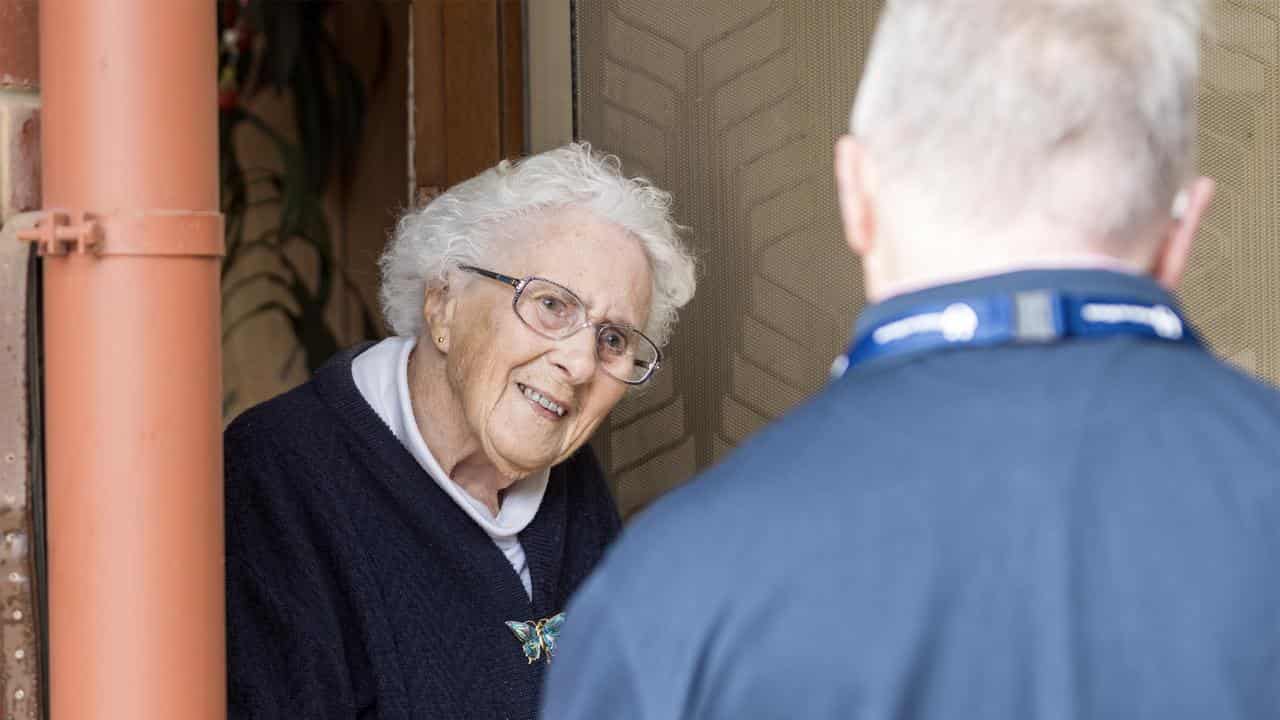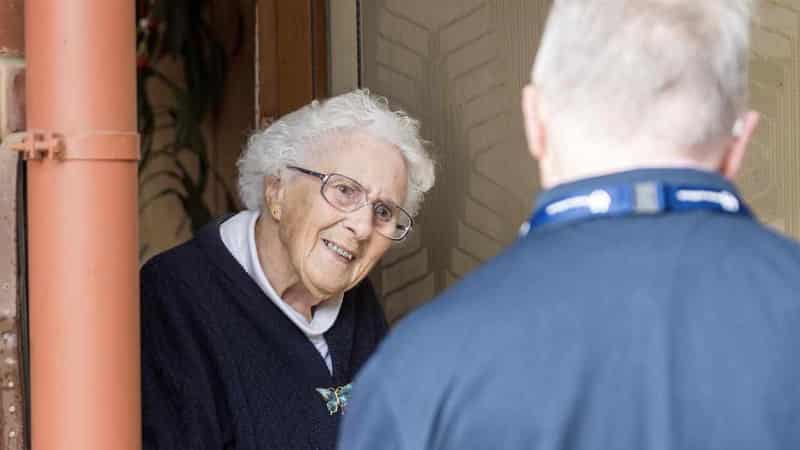
In 1953, a lady on a tricycle took it upon herself to ride around South Melbourne delivering food to the elderly and infirm at a cost of two shillings a meal.
A few years later, Mrs Rhoda Cameron of Ipswich, Queensland, wife of the then federal health minister Donald Alastair Cameron - inspired a similar service in post-war England - tried to establish one in her own community.
She worked out of her backyard gardener's cottage and dinner was served from a thermos flask and a pudding basin for the same two shillings - equivalent to 20 cents a meal.
On August 30, Meals on Wheels Australia celebrated 70 years since those humble beginnings and looked back at the impact its affordable meals and social contact have had on people who are otherwise on the social outskirts of the community.
“What we do certainly goes beyond delivering a meal to someone’s door," Meals on Wheels Australia chair Paul Sadler told AAP.
The service can be a vital friendly face - the only connection to the outside world for many people who may otherwise have little or no social contact.
More than 10 million meals are delivered annually to more than 100,000 consumers with an average age of between 80 and 90, most of whom (two-thirds) live on their own.
The meals may cost a little more now - between $4.50 and $12 depending on which of the nearly 600 services people access across Australia.
But the backbone of the iconic service remains the roughly 45,000 volunteers who give their time and energy to help cook in the kitchen, drive the cars, deliver the meals and spend some time with their recipients.
It is more than just a meal delivery service - Meals on Wheels combats social isolation and provides a friendly face to those in need.
The 70-year milestone is something to be truly proud of, Mr Sadler said.
“One thing that has remained clear over Meals on Wheels’ 70 years is that the service we provide with the support of committed volunteers, is vital," he said.
A Meals on Wheels Social Impact Report conducted by Huber Social found only one in five of the organisation's customers had more than one social interaction in a day, making the few minutes one of their volunteers stop by all the more valuable.
People who received visits of two minutes or more had three per cent higher wellbeing, the 2022 report found.
The visits can stave off social isolation, loneliness and mental and physical health issues.
“Our volunteers are critical in supporting older people to live well, meet their nutritional needs, their dietary and eating preferences, providing necessary social connection, as well as carrying out lifesaving wellbeing checks at every visit," Mr Sadler said.
“It’s all of this that sets Meals on Wheels apart and makes it such a crucial service for communities and older Australians right across the nation."









